Glass Materials Laboratory Instruments
Glass experimental instruments for laboratory and pilot scale use
Rotary evaporator, glass filter funnel, glass reaction kettle, molecular distillation apparatus, evaporator。
Glass container reactor
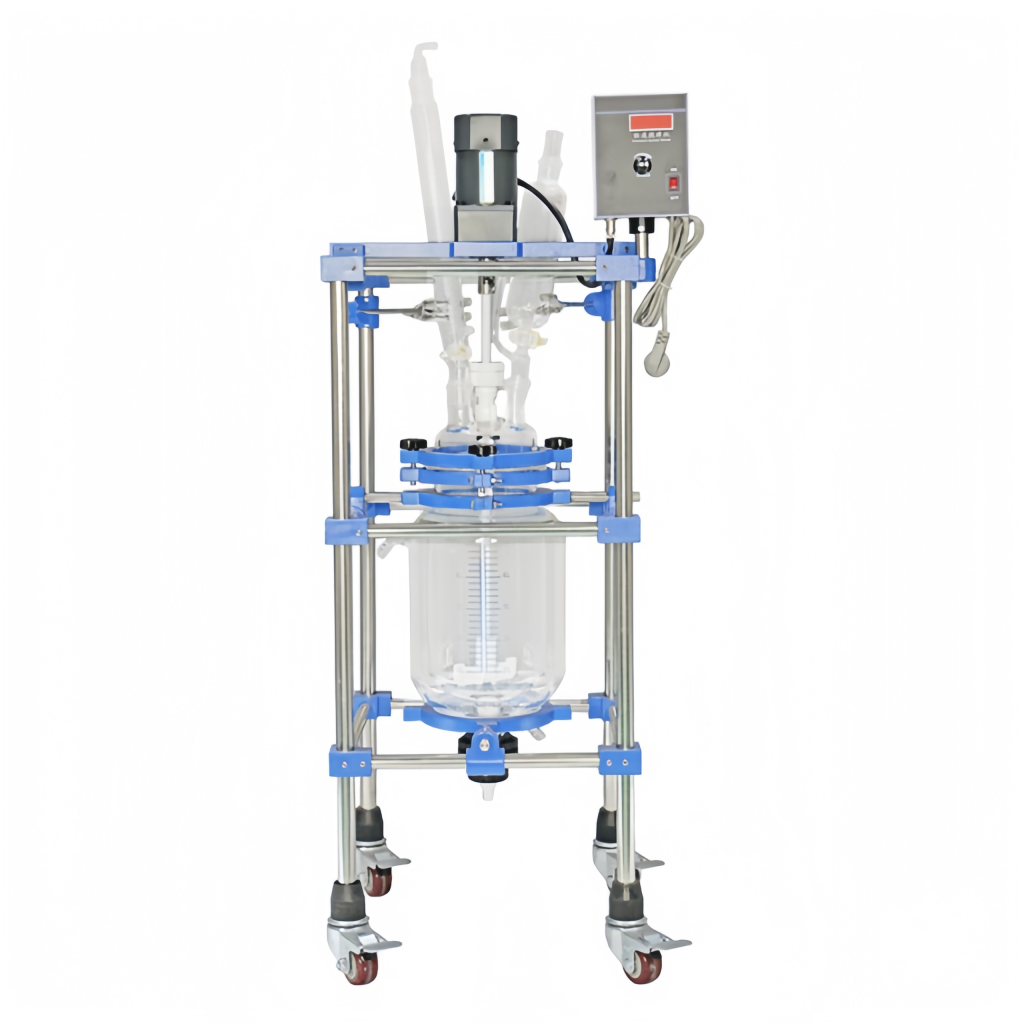
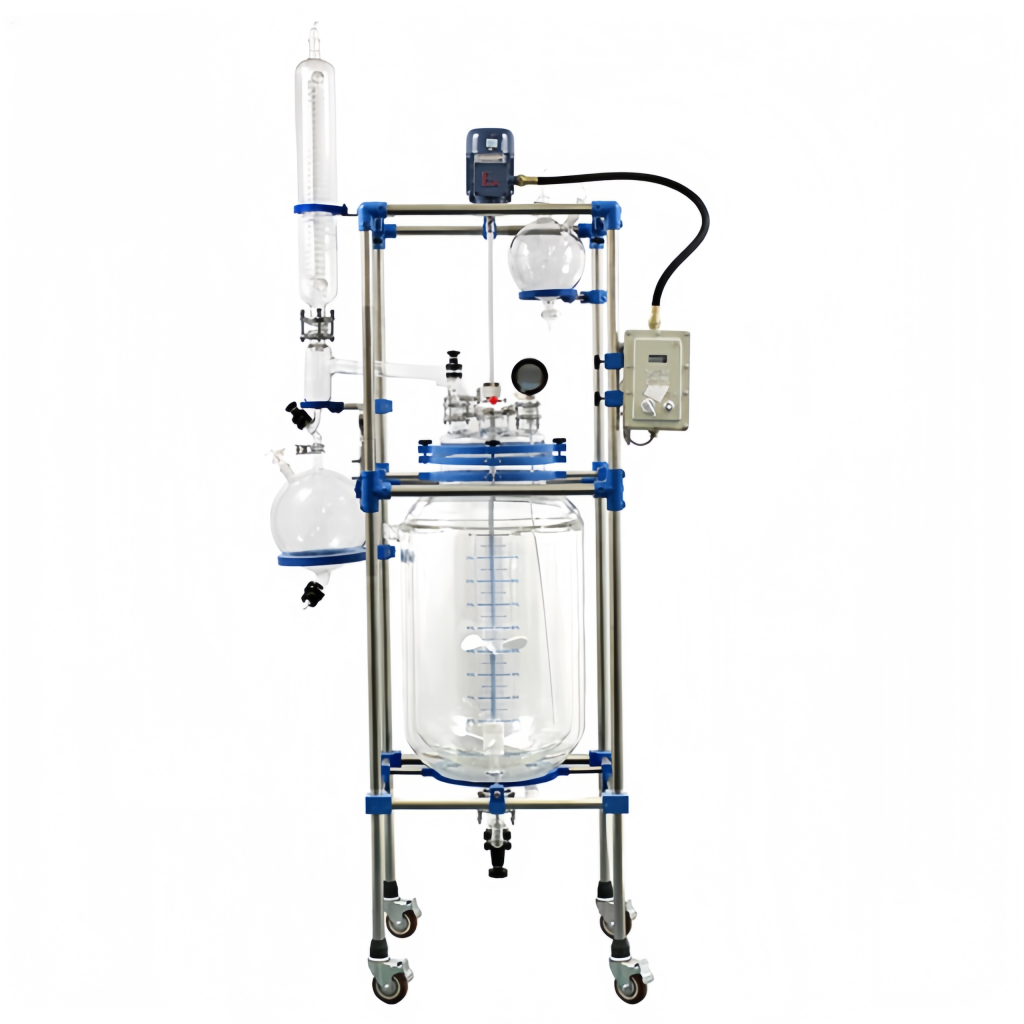
The speed regulating glass reactor is mainly used for experiments such as material synthesis, distillation, and concentration. The structure of the kettle is divided into three types: single-layer, double-layer, and three-layer. The kettle can be evacuated to negative pressure as needed.
Applicable temperature range -80 ℃ -200 ℃.
Applicable pressure range -0.1 MPa -0 MPa.
Connect stainless steel insulated hoses to the inlet and outlet of the jacket to eliminate stress on the inlet and outlet.
Glass molecular distillation instrument
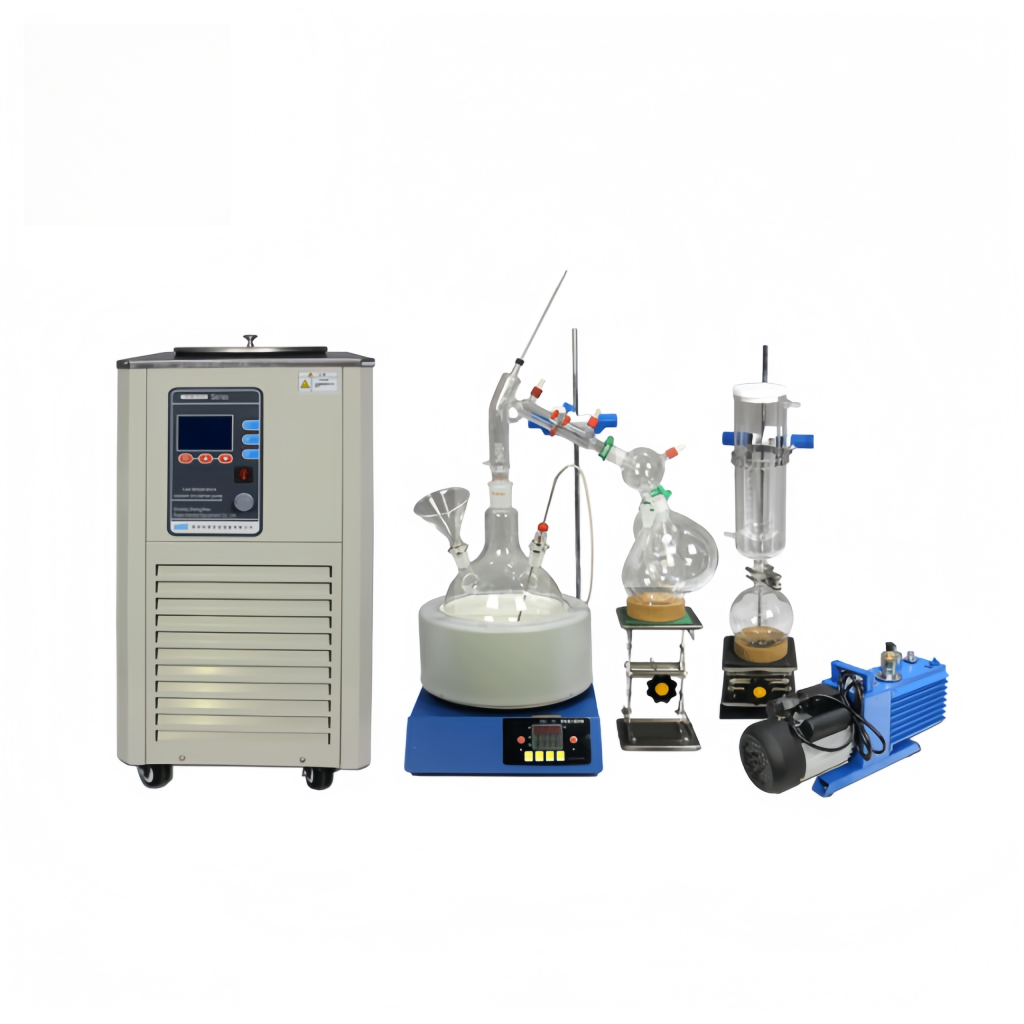
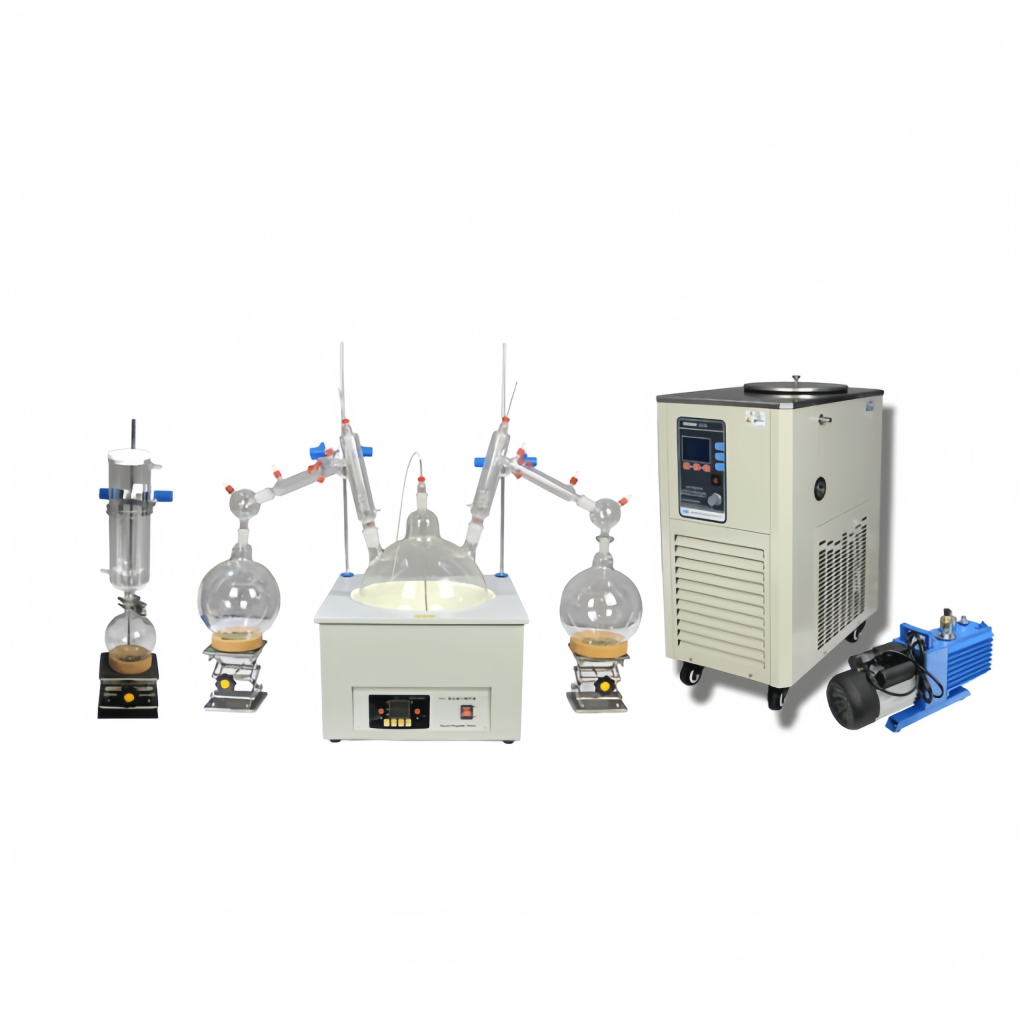
The laboratory molecular distillation equipment used for the separation of high boiling point thermosensitive materials is a process testing instrument that achieves material separation through the difference in molecular motion mean free path. It mainly consists of modules such as evaporator, heating system, vacuum system, etc. The device adopts high borosilicate glass evaporation main body and corrosion-resistant composite material, with a maximum working temperature of 200 ℃, a vacuum degree that can be maintained below 0.001mbar, and a processing capacity range of 50 grams to 3 kilograms per hour
Glass Filter Holder
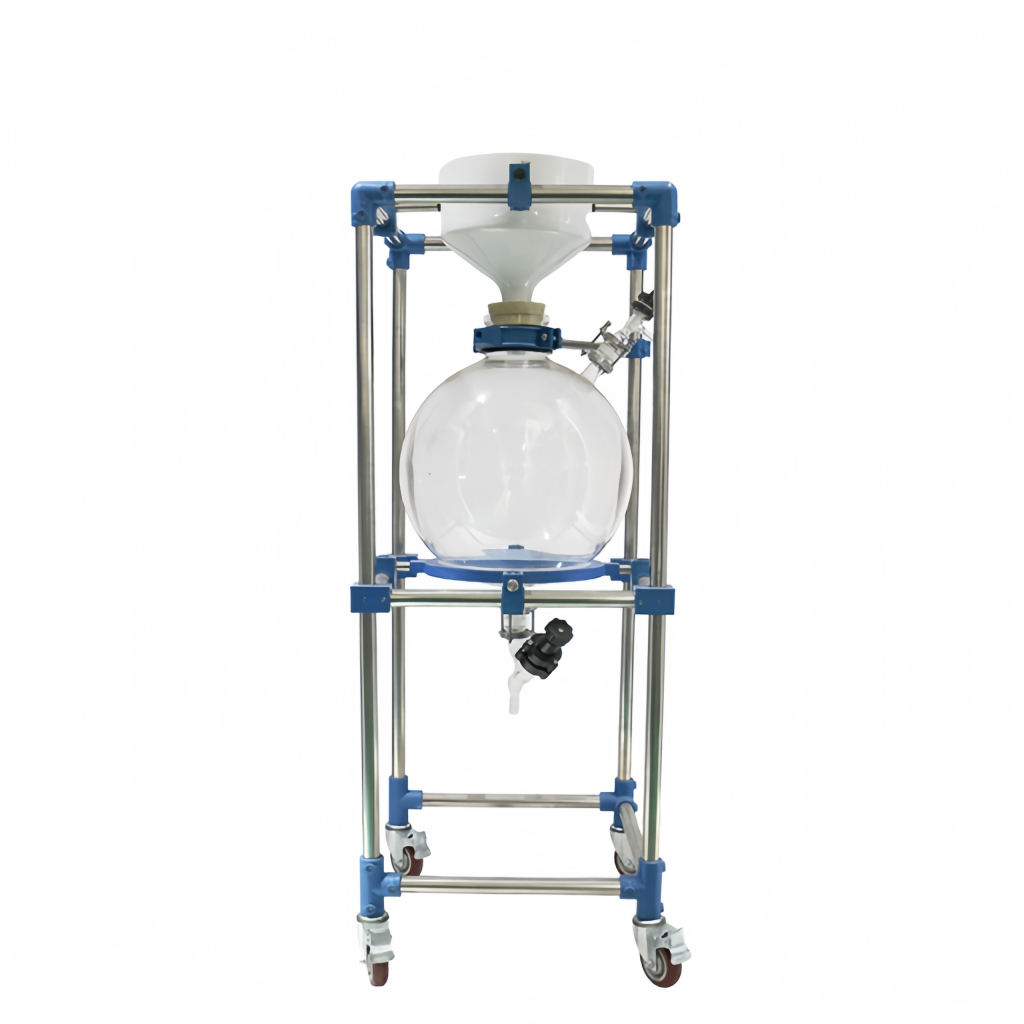
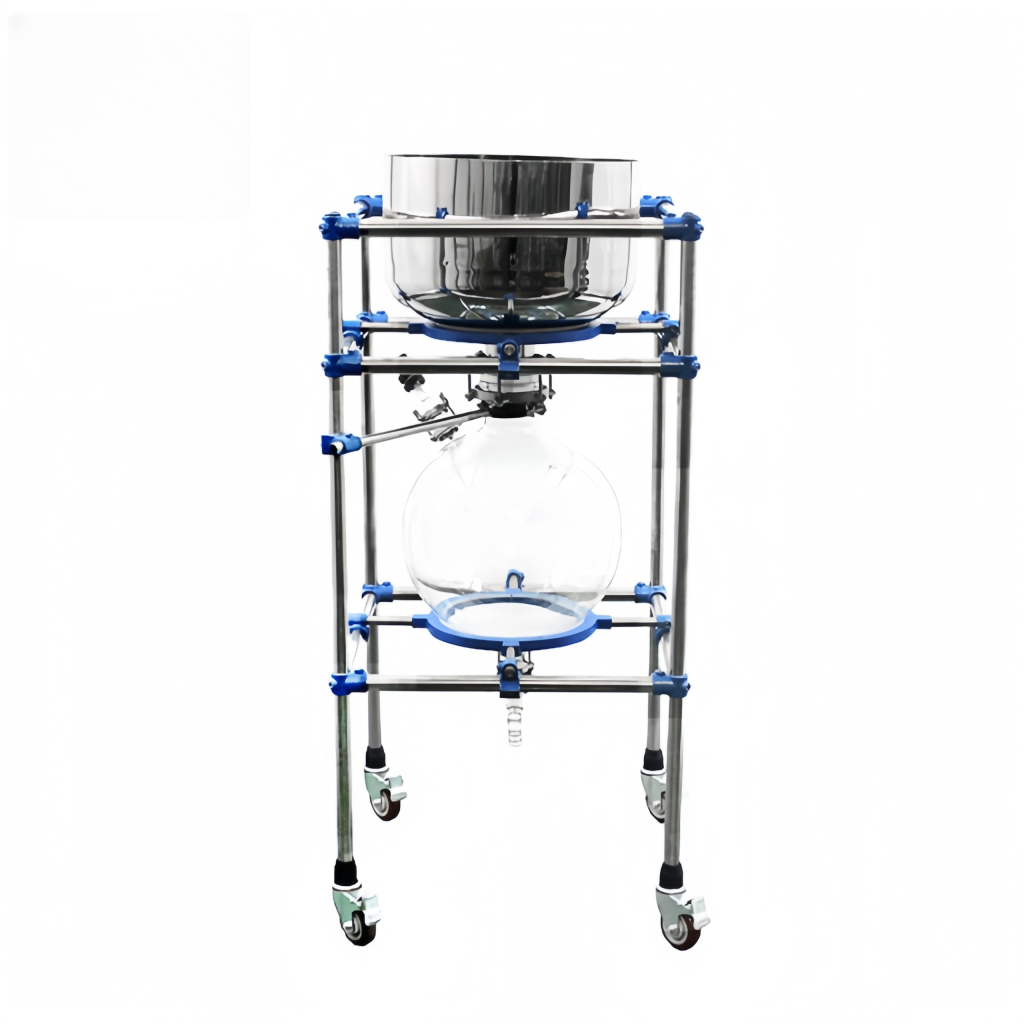
The Buchner funnel is a ceramic instrument used in laboratories for filtering using vacuum or negative pressure suction.
Glass rotary evaporator
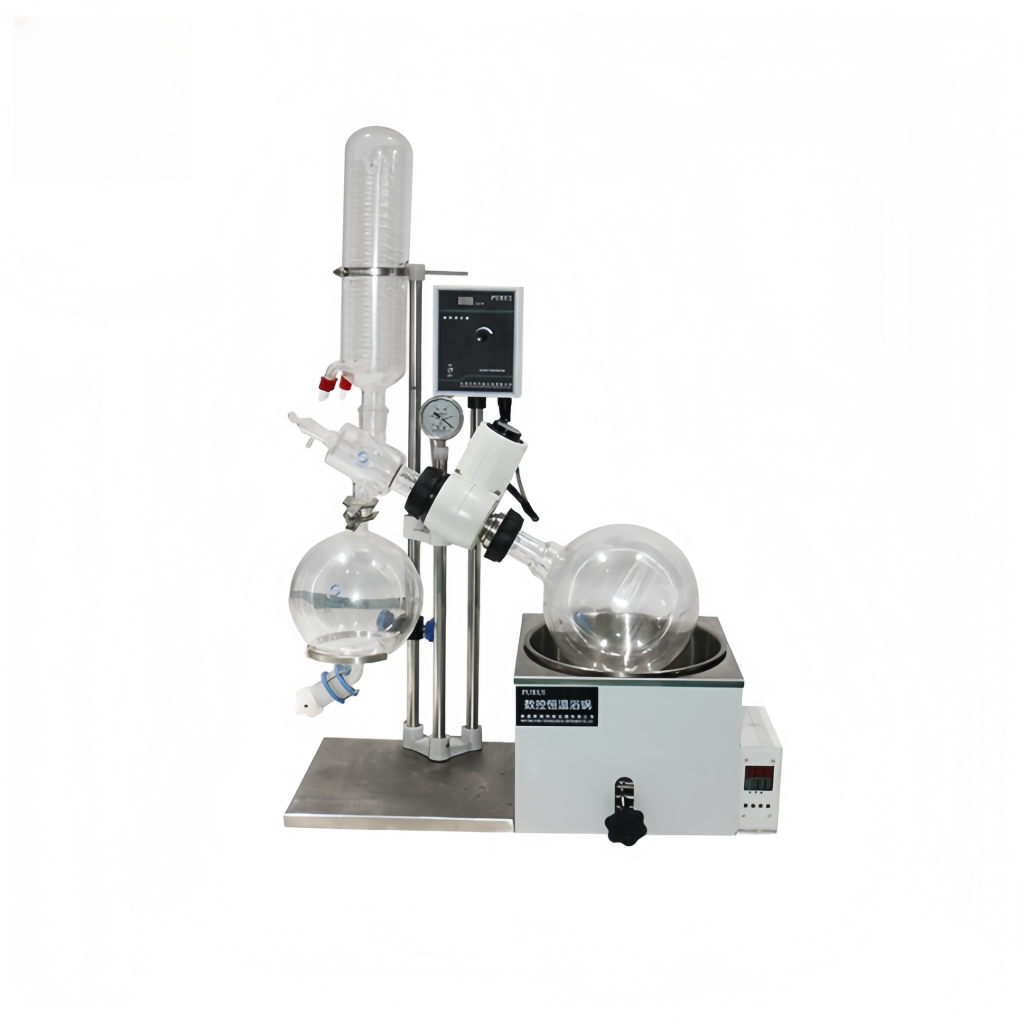
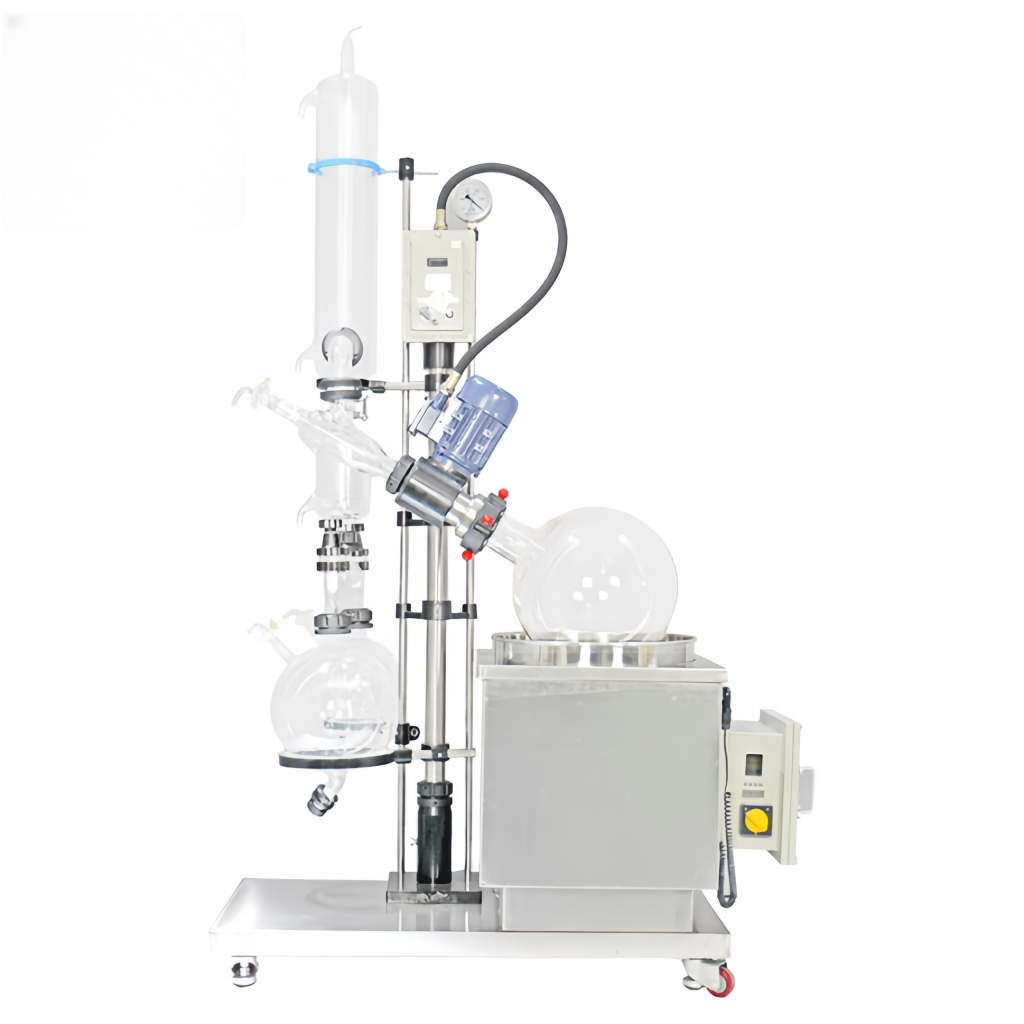
Rotary evaporator, also known as rotary evaporator, is a widely used evaporation instrument in laboratories. It consists of a motor, distillation flask, heating pot, condenser tube, and other parts. It is mainly used for continuous distillation of volatile solvents under reduced pressure conditions and is applied in fields such as chemistry, chemical engineering, and biomedicine.